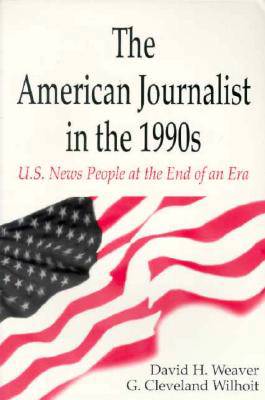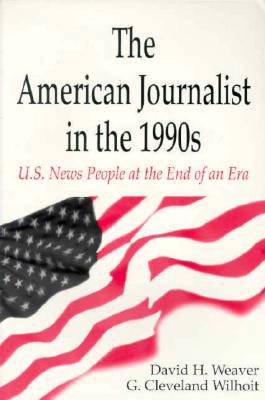
- Retrait gratuit dans votre magasin Club
- 7.000.000 titres dans notre catalogue
- Payer en toute sécurité
- Toujours un magasin près de chez vous
- Retrait gratuit dans votre magasin Club
- 7.000.0000 titres dans notre catalogue
- Payer en toute sécurité
- Toujours un magasin près de chez vous
The American Journalist in the 1990s
U.S. News People at the End of An Era
David H Weaver, G Cleveland Wilhoit
74,95 €
+ 149 points
Format
Description
Who are U.S. journalists? What are their backgrounds and educational experiences? Why did they choose journalism as an occupation? What do they think about their work? What are their professional and ethical values? What kinds of work do they consider their best? Do men differ from women on these questions? Do ethnic and racial minorities differ from the majority? Do journalists working for different print and broadcast news media differ?
This book uses findings from the most comprehensive and representative study ever done of the demographic and educational backgrounds, working conditions, and professional and ethical values of 1,410 U.S. print and broadcast journalists working in the 1990s to answer these questions, including separate analyses for women and minority news people. It also compares many of these findings with those from the major studies of the early 1970s and 1980s. As such, it should be the standard reference on U.S. journalists for years to come. In addition, this study goes beyond the previous two in adding more open-ended questions to explain and enrich quantitative findings, in the belief that the numbers by themselves are not enough to provide explanations for the patterns that emerge. This book includes more of the journalists' own words to fill this gap, as well as an analysis of samples of their self-selected best work.Spécifications
Parties prenantes
- Auteur(s) :
- Editeur:
Contenu
- Nombre de pages :
- 320
- Langue:
- Anglais
- Collection :
Caractéristiques
- EAN:
- 9780805821369
- Date de parution :
- 01-06-96
- Format:
- Livre broché
- Format numérique:
- Trade paperback (VS)
- Dimensions :
- 152 mm x 229 mm
- Poids :
- 521 g

Les avis
Nous publions uniquement les avis qui respectent les conditions requises. Consultez nos conditions pour les avis.






